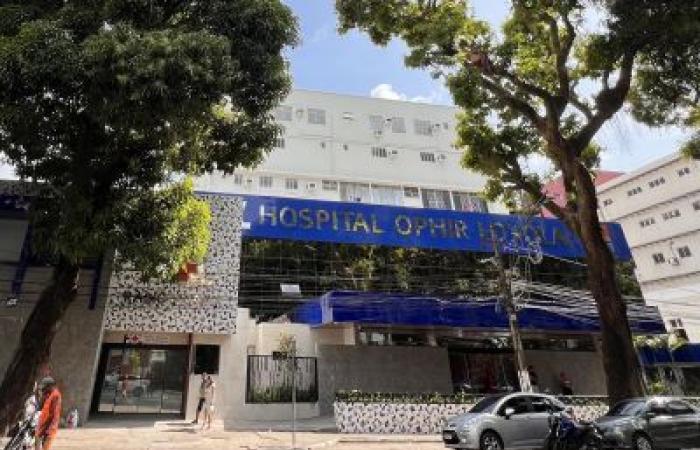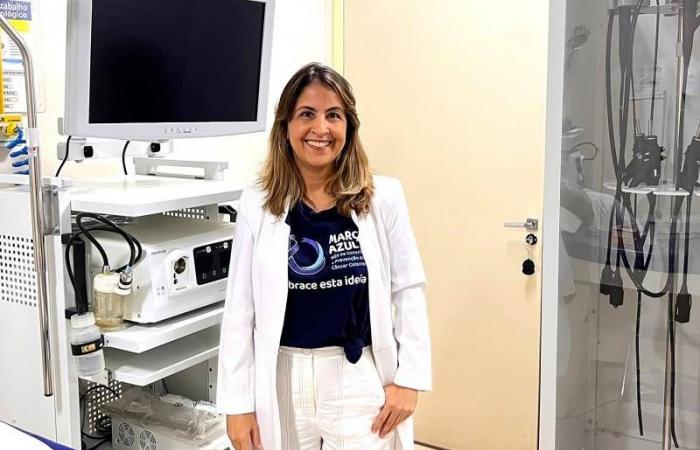Neoplasia of the colorectal region encompasses tumors arising in the lower end of the digestive tract; oncological disease is one of the most common among Brazilians
Sometimes silent in the early stages, bowel cancer affects millions of people around the world and can be fatal if not diagnosed early. In Brazil, data from the National Cancer Institute (Inca) show that the neoplasm is one of the most common among Brazilians, and is expected to surpass the mark of 45 thousand cases in the 2023-2025 period. Specialists from the Ophir Loyola Hospital (HOL), in Belém, reiterate the ‘Blue March’ campaign, which raises awareness about the prevention of the disease, which includes tumors located in the colon and rectum.
For the head of the Endoscopy and Bronchoscopy Service at HOL, endoscopist and gastroenterologist Danieli Batista, the campaign reinforces the need to encourage the population to seek preventive medical care. “The campaign raises awareness about risk factors, prevention and treatment of bowel cancer, also known as colorectal cancer. This is the second most common tumor among men and women and the third that causes the most deaths in Brazil, so we need to stay alert”, said the doctor.
According to the Brazilian Society of Digestive Endoscopy (Sobed), the absence of noticeable symptoms during the period when the disease appears is still one of the biggest challenges for diagnosis. This is because patients often report changes in bowel habits (with diarrhea and/or persistent constipation), cramps, pain in the anal region, blood in the stool or having the feeling of a full intestine even after a bowel movement, when the lesions have already become cancerous. and the disease is at a more advanced stage.
Endoscopist and gastroenterologist Danieli Batista, head of the Endoscopy and Bronchoscopy Service at HOL.“People over the age of 45 need to seek medical advice to undergo tests such as colonoscopy (endoscopic examination that allows the evaluation of the intestine) and occult blood testing (known as the FIT test, which indicates the presence of blood in the feces). These tests identify early injuries, but it is also necessary to pay attention to the main symptoms: weight loss, presence of bleeding in the stool, change in bowel habits, anemia, abdominal pain, lack of appetite and sensation of abdominal mass”, reiterates Danieli Batista.
In addition to these symptoms, it is important to pay attention to risk factors, such as a family history of colorectal cancer, physical inactivity and advanced age. Some medical conditions, such as inflammatory bowel disease, also increase the likelihood of developing colorectal cancer.
According to the digestive endoscopy specialist, bowel cancer requires attention and action with regard to lifestyle changes. “As important as early diagnosis is prevention by improving habits. Don’t smoke, avoid drinking alcohol and reduce your consumption of fatty, processed foods and red meat. Consume more fiber, practice regular physical activity and control your weight. Bowel cancer can be prevented and the earlier the diagnosis, the greater the chance of a cure”, she concluded.
Treatment – The choice of therapeutic approach considers the location of the tumor and the stage of the disease. Depending on the case, the medical team may opt for endoscopic, surgical, chemotherapy and/or radiotherapy treatment. And even after healing, Sobed recommends monitoring with regular consultations and exams to identify possible recurrences early.
Tags: Ophir Loyola embraces Blue March campaign raises awareness bowel cancer
--






